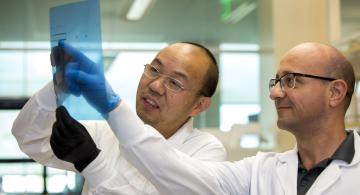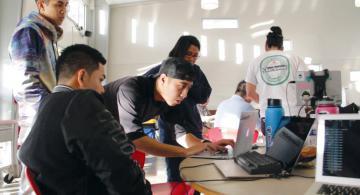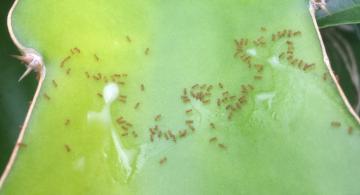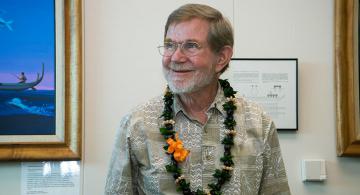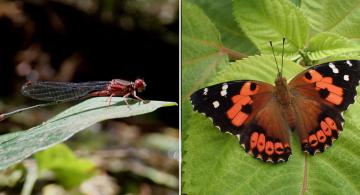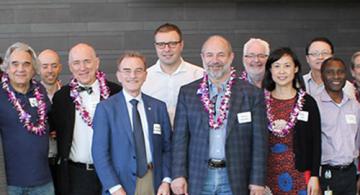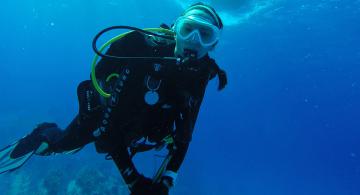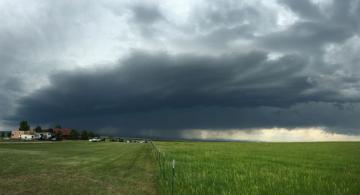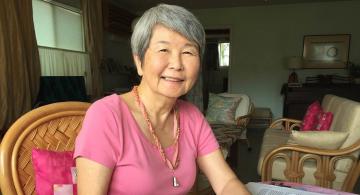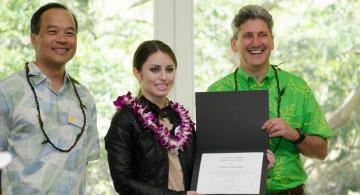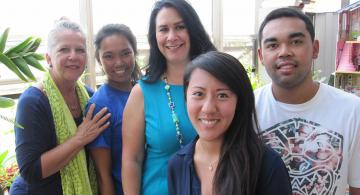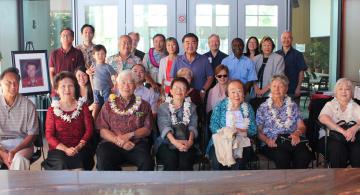Support from donors unleashes the incredible potential of a brilliant researcher. It is the partnership between donor, faculty, and students that creates new knowledge and transforms lives in Hawaiʻi and the world.
Each day, hundreds of faculty members and students throughout the state are engaged in groundbreaking research in areas as diverse as astronomy, cancer studies, teacher training and education, ethnic and cultural studies, government and public policies, ocean and earth science, international relations, high technology development, and business development in general.
In an increasingly competitive world, universities cannot rely solely on government funding to support research. It is the investment and vision of private donors that fuels the groundbreaking stages of research – research that may then be supported by government funding.
On October 2, 2017 Drew Santos and Cooling Cancer presented the University of Hawaii Cancer Center with a $60,000 check.
A tiny computer hidden in a fuzzy snow leopard automatically downloaded newly posted songs on Reddit. A mobile app located the nearest farmers’ markets and displayed their hours of operation. These were some of the great ideas at the 2017 UH-AT&T Hackathon.
It takes a village to raise a child, but it takes a neighborhood to get rid of little fire ants. The invasive species is so fearsome that residents of Hawai‘i Island have abandoned yards, gardens, and sometimes entire rooms in their houses to avoid the nasty sting. An abundance of misinformation about dealing with the LFA has combined with overworked experts and frustrated residents to create a larger problem than the island community should have to endure.
Kīlauea hasn’t always oozed lava, spreading rivers of molten rock across the landscape and into the sea. For 300 years, the volcano produced violent explosions instead, shooting extremely hot ash and glassy shards of lava through the air for miles.
ARCS Foundation Honolulu Chapter experienced the impact of giving first hand when former ARCS Scholar Will Haines described his work on rare and endangered Hawaiian insects during the group’s Heart of Gold Luncheon on Valentine’s Day.
In 2010 Barry and Virginia Weinman created a fund that makes it possible for the UH Cancer Center to invite global leaders in cancer research to Hawaiʻi. This year, 2013 Nobel Prize winner for physiology or medicine Randy W. Schekman received the Weinman Award.
Meet Hauʻoli Mau Loa Foundation Fellows Anela and Ake, our next generation of environmental champions.
The Jonathan Merage Foundation is partnering with SOEST to explore how long-range lightning data can potentially improve storm forecasting.
UH alumna Dr. Harriet Natsuyama wants to make the greatest impact and do the greatest good. Passionate about building a sustainable world and education, she established the Natsuyama-Otsubo Family Initiative Fund.
The first winners of the University of Hawaiʻi President’s Green Initiative Awards were honored in a ceremony on Friday, March 11 at the East-West Center as part of the fourth Hawaiʻi Sustainability in Higher Education Summit.
Project Olonā sparks Native Hawaiian students’ interest in STEM careers through the study of Hawaiian medicinal plants. Kimberly Kahaleua shares how the program helped her become the 1st undergraduate student from a UH community college to win a SACNAS award.
Dr. Kuwada received an award to support a key pilot study. For Kuwada the study is personal. “Being awarded the Masami Horio grant to study gastric cancer is special for me since I too share a personal family connection to gastric cancer here in Hawai‘i. Both of my grandfathers were second generation Japanese, and, one died from gastric cancer and the other from colon cancer.” More about the pilot study and award.
